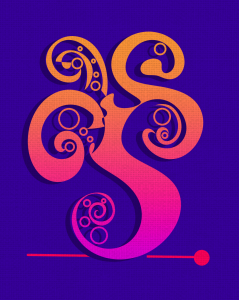
Being intimate with someone in a conversation is a deeply moving and lasting experience. We feel that we have been fully understood for once, in a world where we are largely misunderstood. Swirling, cascading feelings of closeness, belonging, connection, satisfaction. The mind is flooded with good chemicals. We feel refreshed, renewed… more human. But, at the end of the day, when you review your conversations with others – if, like me, you do – do you remember feeling really intimate with another person? Take today for example. Most of the things I talked about with family members were practical and tied to daily concerns. When is it, exactly, that we are intimate? Even when we are with our closest friends, family or significant others, intimate conversations do not happen all the time. They are reserved for special occasions. As a young man in search of love, and as a writer and a human, I think the quest for intimacy and someone to have it with is one of the key quests of my life, if it is not the only one. Such is the importance and relevance of this topic: the conditions of intimacy. That experience of being fully understood which is apart from our normal, transactional conversations.
Having intimacy depends on both sides of a conversation. There has to be a type of perfect reciprocity which is rare in life, since we are all usually in a different head space at different times. For intimacy to occur, one has to be receptive and so does the other. One has to let down one’s guard, so does the other. One has to be willing to confide and think deeply, and so does the other. Such conditions seem to require the apparatus for serious thinking: time, relaxation, privacy, lack of distractions, a strong feeling in the mind, absolute sociability, the support of a strong and long-lasting relationship.
Yet there are also exceptions. Sometimes, one is most intimate with strangers. I believe there is a psychological term for this, when one opens up to someone one doesn’t know. I forget it for the moment. Perhaps this form of intimacy is even more psychologically interesting than the more conventional form. Is it based on a type of daring? Or does it seek to free itself from the burdensome judgement of people we have known for an age? Is it a more liberating and productive form of intimacy in building relationships?
What does it say about the human condition that we don’t have intimacy always? Perhaps we cannot trust all the time, and perhaps this is natural, given what other human beings can be like. Perhaps we wear armour for most of the days of our lives, an impenetrable skin which does not let others inside or for us to go outside of ourselves and live in an other for a while. If connection is so energy sapping and such a leap and expenditure of trust and risk, such an invitation for potential misunderstanding or even hurt, then intimacy may be the rare and choice fruit of our lives. We are not always fully understood. Which is why intimacy is so special and fulfilling. Yet one imagines a world where we can all be intimate with each other, fully understood. Perhaps this is the ultimate, if not expressed and recognised, goal of the human condition. To be fully, finally, understood.

